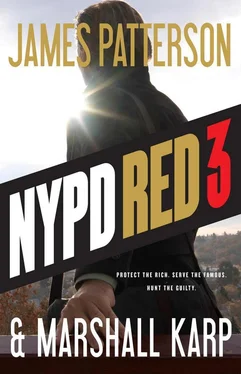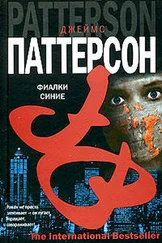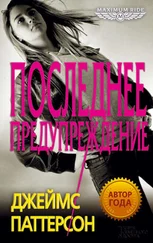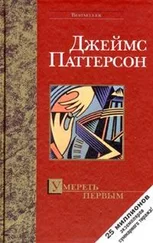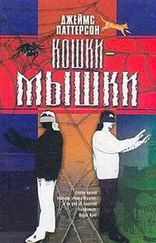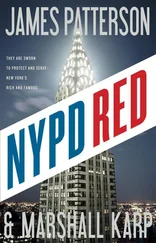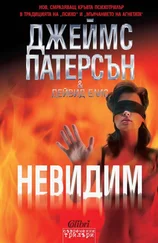“Refresh my memory,” I said. “Do you remember the difference between puts and calls, or do I have to get Warren Buffett on the phone?”
“If you buy a put option, you’re betting that the stock is going to go down,” Kylie said. “If it does, you make money. A call option is the opposite. You bet on a stock you think will go up.”
We listened to six more phone calls, but they only made things murkier. Alden wasn’t betting on one stock. He was buying puts on a dozen different companies, and calls on a bunch of others.
I opened the folder marked Puts and clicked on a spreadsheet. Irene had it all organized — dates, prices, profits.
“Talk about the rich getting richer,” Kylie said. “He made fifty-seven million dollars.”
“Look closer,” I said. “It’s five hundred and seventy million. Every single stock he said would go down tanked.”
“It has to be insider trading, but how did he know the inside dope about so many different companies?”
I opened the Calls spreadsheet. Sure enough, every stock Alden had bet on to go up had taken off, and he’d made another four hundred and forty-two million.
“It adds up to over a billion dollars profit,” Kylie said. “In what — a month?”
I went back to the Phone Calls folder and organized the icons by date. The first one was time-stamped September 4, 2001, at 8:11 a.m. The last was October 12 at 11:09 a.m.
“It took him all of five weeks,” I said. “Except...”
The words wouldn’t come out. In fact, I was afraid if I opened my mouth I would throw up.
I tapped the computer screen. “Look at the dates,” I managed to say.
Kylie followed my finger. “Oh God,” she said.
Alden had bought furiously from the fourth through the tenth and started selling everything off on the seventeenth.
And, of course, there were no transactions on September eleventh or the entire week that followed. America had been closed for business.
We went back and looked at all the stocks Hunter had bet against. American Airlines, United, Merrill Lynch, Morgan Stanley, AXA — all the stocks that had plummeted after the towers came down. And then we looked at the list of stocks he had bet on. Raytheon, United Technologies, Northrop Grumman — and a list of other companies that America turns to when it gears up for war.
“Hunter Alden knew about 9/11 a week before it happened,” Kylie said.
I put my hand to my mouth and nodded.
“Zach, it’s beyond evil. He made a billion dollars exploiting what he knew, and then he was willing to let his son die to cover his tracks.”
I still couldn’t speak. I ran to the bathroom and managed to get there just in time to blow my T-Bar steak into the toilet.
“Everyone wants to get rich,” Hutch Alden had told Hunter when the boy was only ten years old. “They start out poor, they reach for the moon, and if they fall on their asses, what the hell? They go back to being poor. You’re different. You’re starting out rich. Your job is to stay that way.”
“How do I do that?” Hunter had asked.
“I’ve got twenty-six rules. I’ll teach them to you.”
Three decades later, Hunter Alden was finally putting rule number eighteen to the test. Always have an exit strategy.
He first started planning an escape route on September 12, 2001. He knew there would be an attack on American soil, but even he had been shocked by the magnitude. He knew if the day ever came when his connection to 9/11 was at risk of being leaked, he’d have to leave the country.
Today was that day, and as soon as the storm lifted, he was flying to Cuba. Permanently. The U.S. and Cuba had an extradition treaty that was over a century old, but with no diplomatic relations, it was as intimidating as a jaywalking ticket.
Hunter filled two suitcases with bare essentials. It was wrenching, but the alternative was unthinkable. Robert Vesco and Marc Rich had been smart enough to get out while they could. Bernie Madoff stuck around and got 150 years in prison. Hunter knew he had only two choices: spend his days on the beach in Playa Varadero, or in a cell in Otisville.
The doorbell rang. It was Findley.
“Crazy night to be going to the airport,” he said.
“Did you tell my father I’m borrowing his car and driver?” Hunter said.
“Come on, sport,” Findley said. “How far do you and me go back? I been covering your ass since before you figured out how to wipe it. You said keep it on the down low, so that’s what I done. I didn’t tell Mr. Hutch, I didn’t tell Lorna, I didn’t tell nobody. Like usual, it’s just between us chickens.”
He picked up the two suitcases that were sitting at the front door and put them in the trunk of the Cadillac. Then he came back and walked Hunter to the car.
“And what’s with the hush-hush, anyway?” Findley asked once he got behind the wheel. “You know your father would give you the shirt off his back. He don’t care if I give you a ride to the airport.”
“Hutch and I don’t see eye to eye on this deal I’m going to close. It’s just going to upset him if I tell him I’m going.”
“Your secret’s safe with me, sport,” Findley said. “It’s going to take us a good hour to get to HPN. Even then, you’ll be lucky if they got a working runway. Why don’t you take a load off and pour yourself a drink? I got a fresh supply of your favorite.”
Hunter opened the bar and took out a bottle of Johnnie Walker Blue. “It’s not as fresh as you think,” he said. “Somebody’s been at it.”
Findley laughed. “That somebody was me. All I had was one lousy shot, and that was two days ago, so I’m safe to drive. But if you run out of booze before we get to Westchester, I’ll find a liquor store and pick you up another one.”
Hunter unscrewed the cap and poured the Scotch into a crystal rocks glass. He leaned back in his seat and tipped the glass, letting the whiskey slide down his throat and warm him from the inside.
Findley watched him through the rearview mirror. “From the expression on your face, it looks like I have me another satisfied customer.”
Hunter took another swallow and felt the Blue magic working on his brain. “That’s what I always liked about you, Findley,” Hunter said. “You always took good care of me.”
“That I did, sport. And we had a lot of good times together,” Findley said, keeping one eye on the road and the other on the mirror. His mind flashed back to the six-year-old Hunter, laughing and singing as they drove off to kindergarten.
Hunter downed his drink, grabbed the bottle, and tried to refill his glass. His hand dropped to his side, and the bottle crashed to the floor.
Findley pulled the car over and turned around. Hunter Alden was unconscious on the backseat. The booze and the drugs had worked fast.
“I’m sorry, sport,” Findley said, tears streaming down his cheeks. “You been like family to me. Always have. But not anymore.”
Hunter Alden opened his eyes and strained to sit up, but a dozen thick rubber tarp straps lashed him to the table.
“Findley,” he screamed.
No answer.
He stared straight up, turning his head left, and then right, as much as he could. The room was so big and the straps were so tight that he couldn’t twist far enough to see the walls. Just a few recessed lights, set on dim. He tilted his chin to the ceiling and rolled his eyes back so he could look behind him.
And there, fifteen feet over his head, was a disco ball. It wasn’t moving, but by shifting his gaze, he could watch the light reflect off the thousands of tiny mirrored facets. Where the hell was he?
Читать дальше
